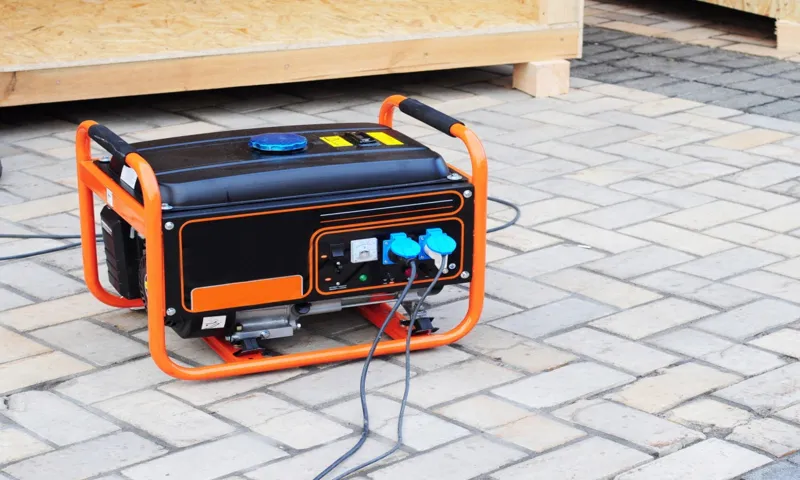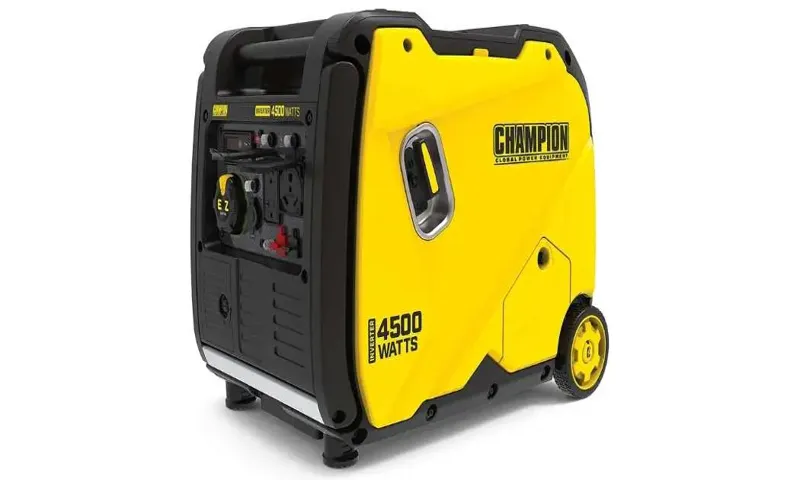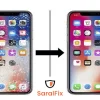Welcome to our blog post on power inverter generators. Have you ever found yourself in a situation where you needed power but didn’t have access to an outlet? Maybe you were camping in the great outdoors or experiencing a power outage at home. In these moments, a power inverter generator can be a lifesaver.
But what exactly is a power inverter generator? Simply put, it’s a device that converts DC power from a battery into AC power that can be used to run various appliances and electronics. Unlike traditional generators, which produce a constant flow of electricity, power inverter generators provide a clean and stable power supply, making them ideal for sensitive equipment like laptops and smartphones. So why choose a power inverter generator over a traditional generator? Well, the main advantage lies in their portability and versatility.
Power inverter generators are typically smaller, lighter, and quieter than their traditional counterparts, making them easy to transport and operate in various settings. Whether you’re going on a road trip, camping in the wilderness, or in need of backup power at home, a power inverter generator can meet your needs. Another benefit of power inverter generators is their fuel efficiency.
Unlike traditional generators, which run at a constant speed, power inverter generators adjust their engine speed based on the power demand. This not only reduces fuel consumption but also extends the generator’s runtime, allowing you to enjoy uninterrupted power for longer periods. In addition to their portable and fuel-efficient nature, power inverter generators also offer advanced features like parallel capability, which allows you to connect two generators for increased power output, and automatic shutoff when the oil is low, preventing engine damage.
So, whether you’re an outdoor enthusiast, a frequent camper, or simply want a reliable backup power source, a power inverter generator is definitely worth considering. In our upcoming blog posts, we’ll dive deeper into the different types of power inverter generators available, their benefits and limitations, and how to choose the right one for your specific needs. Stay tuned for more information and make sure to check out our next blog post on the different types of power inverter generators available.
Table of Contents
What is a Power Inverter Generator?
Power inverter generators are a special type of generator that provide clean and stable power, making them perfect for sensitive electronics like laptops, smartphones, and other devices that require a constant and reliable power source. But how do they work? Well, unlike traditional generators, which generate power directly from fuel combustion, power inverter generators use a three-step process to convert the power. First, the generator produces AC power, just like traditional generators.
Then, this AC power is converted into DC power using rectifiers. Finally, this DC power is then inverted back into clean and stable AC power using inverters. This process ensures that the power produced by the generator is not only clean but also free of any voltage fluctuations or surges, which can damage sensitive electronics.
So, if you’re looking for a generator that can power your electronics safely and efficiently, a power inverter generator is the way to go.
Definition of Power Inverter Generator
power inverter generator, inverters, portable power, electricity, camping, backup power. What is a Power Inverter Generator? Have you ever found yourself in need of electricity while camping or during a power outage? Then you may want to consider getting a power inverter generator. But what exactly is a power inverter generator? It’s like having a portable power station that can provide electricity wherever you go.
Unlike traditional generators, which run on gasoline or diesel, a power inverter generator uses advanced technology to convert DC power into AC power. In simple terms, it takes the power from the battery and converts it into a form that can be used to power your devices and appliances. One of the major advantages of a power inverter generator is its ability to provide clean and stable power.
This means that you can safely run sensitive electronics, such as laptops and smartphones, without worrying about damaging them. Additionally, power inverter generators are generally quieter and more fuel-efficient compared to traditional generators. Power inverter generators are also known for their portability.
They are compact and lightweight, making them easy to transport and store. This makes them perfect for camping trips, outdoor events, or even as a backup power source in case of emergencies. In conclusion, a power inverter generator is a versatile and convenient device that provides portable and reliable power.
Whether you need electricity for camping or as a backup during a power outage, a power inverter generator is a great investment. So, next time you find yourself in need of electricity on the go, consider getting a power inverter generator to keep the power flowing.

Key Features and Benefits
power inverter generator
How Does a Power Inverter Generator Work?
Have you ever wondered how power inverter generators work? Well, let me break it down for you. Power inverter generators are a popular choice for outdoor activities, such as camping or tailgating, as they provide reliable and portable power. Unlike conventional generators, which produce AC (alternating current) power, inverter generators convert the AC power into DC (direct current) power and then invert it back into clean and stable AC power.
This process allows the generator to produce power that is safe for sensitive electronics, like laptops or smartphones. Think of it like a translator who takes a message, translates it into a different language, and then translates it back into the original language, ensuring that the message is clear and accurate. Inverter generators also feature a throttle control that adjusts the engine speed based on the power demand, making them more fuel-efficient and quieter than traditional generators.
So, the next time you’re enjoying the great outdoors and need reliable power, consider a power inverter generator to keep your devices charged and your fun going!
Overview of Power Generation Process
power inverter generator, power generation process A power inverter generator is an innovative device that combines the functions of a conventional generator and an inverter. But how does it work? Well, let’s break it down. A generator is a machine that converts mechanical energy, usually from an engine, into electrical energy.
It works by rotating a coil of wire through a magnetic field, creating an electrical current. On the other hand, an inverter is a device that converts DC (direct current) power into AC (alternating current) power. So when you combine these two technologies, you get a power inverter generator.
This type of generator first produces DC power, which is then converted into AC power using an inverter. This AC power can then be used to power various electronic devices and appliances. The advantage of a power inverter generator is that it provides clean and stable power, making it suitable for sensitive electronics like laptops and smartphones.
It also offers fuel efficiency and portability, making it a popular choice for camping, tailgating, and other outdoor activities. So, whether you’re camping in the woods or experiencing a power outage, a power inverter generator can provide you with the electricity you need.
Step 1: Fuel Combustion
power inverter generator A power inverter generator is a versatile and reliable source of electricity that can be used in a variety of situations. But have you ever wondered how it actually works? Well, let me break it down for you. The first step in the process is the fuel combustion.
Just like a regular generator, a power inverter generator also needs fuel to generate electricity. This fuel, typically gasoline, is burned in an internal combustion engine, which is connected to an alternator. As the fuel is burned, it releases energy in the form of heat, which is then converted into mechanical energy by the engine.
This mechanical energy is transferred to the alternator, which is responsible for generating the electric power. So, in a nutshell, the fuel combustion in a power inverter generator is what drives the entire electricity generation process.
Step 2: Mechanical Energy Generation
power inverter generator, mechanical energy generation, how does it work? A power inverter generator is a device that generates electrical energy through the conversion of mechanical energy. But how does it actually work? Well, to put it simply, it’s all about converting one form of energy into another. Firstly, let’s talk about the mechanical energy generation side of things.
A power inverter generator typically consists of an engine that runs on either gasoline or propane. This engine is responsible for producing mechanical energy. Think of it as the heart of the generator, pumping energy into the system.
Now, this mechanical energy is transferred to an alternator, which is another important component of the generator. The alternator’s job is to convert the mechanical energy into electrical energy. It does this through the use of electromagnetic induction.
The alternator contains a set of coils and a magnet. As the engine spins the magnet, it creates a magnetic field that passes through the coils. This induces an electric current in the coils, which generates the electrical energy.
But here’s where things get interesting. The electrical energy produced by the alternator is in the form of alternating current (AC). However, most of our electrical devices and appliances operate on direct current (DC).
So, how do we bridge the gap between AC and DC? This is where the power inverter comes into play. The power inverter’s job is to convert the AC power into DC power. It does this by using a series of electronic components, such as diodes and capacitors, to rectify and smooth out the electrical waveform.
Step 3: Conversion to Electrical Energy
power inverter generator, electrical energy, conversion, how does it work Have you ever wondered how a power inverter generator works? Well, let me break it down for you. The key to understanding how it operates lies in the concept of converting mechanical energy into electrical energy. You see, a power inverter generator uses an internal combustion engine to produce mechanical energy.
This engine is connected to a generator, which, in turn, generates electricity. But how does it convert this mechanical energy into electrical energy? It’s all thanks to a device called an inverter. Think of it as a translator that takes the raw mechanical energy and translates it into a clean and steady flow of electrical power.
So, just like a translator converts one language into another, an inverter converts mechanical energy into electrical energy. This energy can then be used to power various devices and appliances, making it a convenient and reliable source of electricity.
Exploring the Inverter Technology
If you’re curious about how power inverter generators work, you’re not alone. These innovative machines are becoming increasingly popular due to their versatility and convenience. Unlike traditional generators, power inverter generators use advanced technology to produce clean and stable electricity.
They accomplish this by converting the direct current (DC) produced by the generator’s engine into alternating current (AC), which is the type of electricity used to power most household appliances and electronics. This conversion is achieved through the use of electronic circuitry and sophisticated control systems. The result is a generator that can efficiently run sensitive electronics without the risk of damaging them.
So, whether you’re going camping and need to power your laptop, or experiencing a power outage and want to keep your refrigerator running, a power inverter generator is a reliable and efficient solution.
What is an Inverter?
inverter, technology, power, DC-to-AC, appliances. An inverter is a crucial piece of technology that plays a vital role in our everyday lives, even if we may not realize it. It is commonly used to convert direct current (DC) power into alternating current (AC) power, allowing us to power multiple appliances and electronic devices.
So, how does it work? Imagine you have a car battery that only outputs DC power, but you need to power your laptop, which requires AC power. This is where the inverter comes in. It takes the DC power from the battery and cleverly converts it into AC power that can be used to charge your laptop or any other AC-powered device.
Isn’t that fascinating? Inverters are commonly used in our homes, vehicles, and even in renewable energy sources like solar panels. With an inverter, you can make the most of your electrical devices and ensure they receive the right kind of power they need to function properly. So, the next time you charge your phone or power up your laptop, remember that it’s all thanks to the incredible technology of inverters!
How Inverter Technology is Used in Power Generator
inverter technology, power generator
Advantages of Inverter Technology in Generator
Inverter technology is revolutionizing the world of generators. Unlike conventional generators that rely on an engine running at a constant speed to produce electricity, inverter technology allows for a variable speed engine. This means that the engine can adjust its speed according to the amount of power required, resulting in more efficient fuel consumption and quieter operation.
Additionally, inverter generators produce clean and stable power, making them perfect for powering sensitive electronic devices like laptops, smartphones, and televisions. They also have the ability to deliver extra power when needed, making them ideal for use in RVs or during power outages. Overall, the advantages of inverter technology in generators are numerous and make them a valuable investment for anyone in need of a reliable and efficient power source.
Understanding the Role of Alternator
Power inverter generators are a popular choice for people who need portable power on the go. But how do they actually work? Well, it all comes down to the alternator. You see, the alternator is the heart of the generator, converting mechanical energy into electrical energy.
It does this by utilizing a rotating magnetic field and a stationary coil of wire, called the stator, to generate electricity. But here’s where things get interesting. Unlike traditional generators, which produce AC (alternating current) power, power inverter generators are equipped with an inverter that converts the AC power into DC (direct current) power.
This DC power is then converted back into AC power by the inverter, allowing for a stable and clean power output. So, in other words, the power inverter generator takes the raw electricity produced by the alternator and turns it into a usable form that can power your devices, whether you’re camping, working on a construction site, or dealing with a power outage.
What is an Alternator?
alternator, understanding, role of alternator
The Function of an Alternator in Power Inverter Generators
power inverter generators, role of alternator, function of alternator, power generation, electrical devices, converting power
Key Considerations for Alternator Selection
alternator selection, role of alternator, key considerations
Benefits and Uses of Power Inverter Generators
Have you ever wondered how do power inverter generators work? Well, let me break it down for you. Power inverter generators are incredibly versatile and offer many benefits. They work by converting DC power, usually from a battery, into AC power, which is the type of power used in most household appliances.
This conversion process is done through a complex electrical circuit that includes components such as an alternator and an inverter. The alternator generates the initial DC power, and then the inverter converts it into high-quality AC power. The result is clean, stable power that can be used to run sensitive electronics, such as computers and smartphones, without the risk of damaging them.
Power inverter generators are also known for their fuel efficiency, quiet operation, and portability. They are perfect for camping trips, outdoor events, and as a backup power source for your home during emergencies. So, if you’re looking for a reliable and convenient power source, a power inverter generator might be the perfect choice for you.
Portability and Versatility of Power Inverter Generators
power inverter generators, benefits and uses In today’s world, where access to electricity is essential for our daily lives, power inverter generators have become increasingly popular. These compact and portable devices have revolutionized the way we generate power on the go. One of the key benefits of power inverter generators is their portability.
Unlike traditional generators that are bulky and heavy, power inverter generators are lightweight and easy to carry. This makes them ideal for camping trips, outdoor events, and even emergency situations. In addition to their portability, power inverter generators offer versatility in the types of appliances they can power.
With their clean and stable power output, they can safely power sensitive electronic devices like laptops, smartphones, and even medical equipment. This makes power inverter generators an excellent choice for outdoor enthusiasts, remote workers, and those living in areas with unreliable power grids. So, whether you’re planning a camping trip or need a backup power source, investing in a power inverter generator can provide you with the convenience and peace of mind you need.
Applications in Camping, RVing, and Outdoor Activities
In the world of camping and outdoor activities, having a reliable source of power is crucial. This is where power inverter generators come into play. These portable devices are designed to convert DC power into usable AC power, allowing you to power up your electronic devices even when you’re in the middle of nowhere.
So, what are the benefits and uses of power inverter generators? Well, imagine being able to charge your phone, run your mini-fridge, or power up your portable fan while camping in the woods. It’s like having a mini power station right at your fingertips. Not only are power inverter generators convenient, but they are also incredibly versatile.
They can be used for camping, RVing, tailgating, outdoor parties, and even emergency situations. So whether you’re planning a remote camping trip or simply want to be prepared in case of a power outage, investing in a power inverter generator is definitely worth considering.
Backup Power Source for Homes and Businesses
power inverter generators, backup power source, benefits and uses
Conclusion: Harness the Power of Inverter Generators
In conclusion, power inverter generators are like the superheroes of the generator world, with the ability to transform the raw power of gasoline into the clean and reliable energy that our electronic devices crave. By utilizing a clever mix of physics and technology, they’re able to convert the wild and untamed AC power into a perfectly civilized and polite DC power. Think of it like an extravagant dinner party, where the rowdy AC power is tamed and refined into a well-mannered DC power, ready to power our sensitive gadgets without a hiccup.
So, the next time you’re in need of electricity on the go, remember that behind the scenes, an inverter generator is working its magic, providing you with power fit for royalty, and giving you the freedom to adventure without leaving your electronic companions behind.”
FAQs
How do power inverter generators work?
Power inverter generators work by converting DC power from a battery into AC power, using electronic circuitry. This allows them to produce clean, stable power that is suitable for sensitive electronic devices.
What are the advantages of power inverter generators?
Power inverter generators have several advantages, such as being more fuel-efficient, quieter, and producing cleaner power compared to traditional generators. They are also typically lighter and more portable, making them ideal for camping or outdoor activities.
Can a power inverter generator be used for sensitive electronics?
Yes, power inverter generators are designed to provide clean and stable power, making them safe to use with sensitive electronics like laptops, smartphones, and TVs. Their low total harmonic distortion ensures that your devices won’t be damaged by unstable power.
How long can a power inverter generator run on a full tank of fuel?
The runtime of a power inverter generator depends on the load it is powering and the capacity of its fuel tank. Generally, a smaller unit may run for around 8-12 hours on a full tank, while larger units can run for 20-30 hours or more.
Can a power inverter generator be used in parallel with another unit?
Yes, many power inverter generators can be used in parallel with another compatible unit, allowing you to double the power output. This is particularly useful in situations where you need more power, such as during a power outage or when running multiple heavy-duty appliances.
How loud are power inverter generators compared to traditional generators?
Power inverter generators are generally quieter than traditional generators, thanks to advanced soundproofing technologies and the use of quieter engines. The noise level can vary depending on the brand and model, but most power inverter generators operate at around 50-60 decibels, which is comparable to normal conversation levels.
Can a power inverter generator be used indoors?
It is not recommended to use a power inverter generator indoors, as they still emit carbon monoxide, which can be deadly if inhaled in high concentrations. Always ensure proper ventilation and use the generator in a well-ventilated outdoor area to avoid carbon monoxide poisoning.



